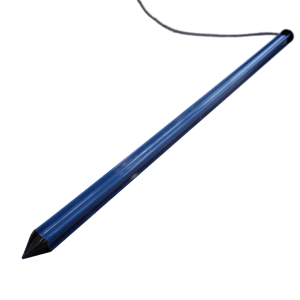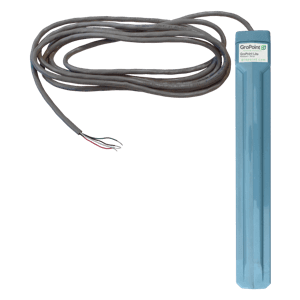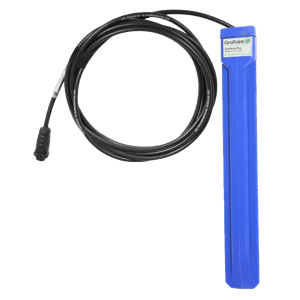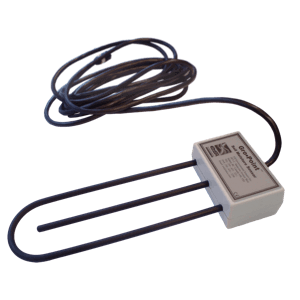Compare the GroPoint™ Sensor Suite
| GroPoint Profile | GroPoint Lite | GroPoint Pro | GroPoint Classic | ||
|---|---|---|---|---|---|
| Product | 
|
 |
 |
 |
|
| View Profile | View Lite | View Pro | View Classic | ||
| Summary | The only soil moisture probe to give a true soil moisture profile by continuously measuring the volumetric water content at multiple depths while also measuring the soil temperature. | Analog or digital soil moisture and soil temperature sensor. Exceptional accuracy and fully-potted electronics for long-term durability. | This soil sensor measures the soil moisture, temperature and electrical conductivity (EC), while also functioning as a wetting front sensor. Exceptional accuracy and fully-potted electronics for long-term durability. | Original analog soil moisture sensor. Legendary ruggedness and dependability. Exceptional accuracy and large sphere of influence. | |
| Why choose this sensor? | When you want to measure the soil moisture profile and soil temperature profile at multiple depths with extreme accuracy to monitor water penetration through the soil. | When you need an extremely accurate and durable single-point soil moisture sensor to measure the volumetric water content and soil temperature. | When you need the accuracy and durability of GroPoint Lite, but also need to measure electrical conductivity (salinity) and would like a simple way to measure the wetting front. | When you need a 4-20mA analog solution and/or want a large area of influence surrounding the soil moisture sensor. | |
| Moisture | |||||
| Temperature | (Optional every 10cm) | (Digital Only) | |||
| Electrical conductivity (salinity or EC) | |||||
| Wetting front | |||||
| Technology | TDT5Multiples of 15cm segments. | TDT5 | TDT5 | TDT | |
| Analog | 0-5mA | ||||
| 4-20mA | |||||
| Digital | SDI-12 | ||||
| RS-485 MODBUS |
|||||
| Measurement range | Moisture | 0% to 100% of VMC | 0% to 100% of VMC | 0% to 100% of VMC | 0% to 100% of VMC |
| Temperature | -20°C to +70°C (-4°F to 158°F) | -20°C to +70°C (-4°F to 158°F) (digital only) | -20°C to +70°C (-4°F to 158°F) | n/a | |
| Electrical Conductivity | n/a | n/a | 0 to 4 dS/m | n/a | |
| Accuracy | Moisture | ±2.0% * | ±2.0% * | ±2.0% * | ±2.0% * |
| Temperature | ±0.5°C | ±0.5 °C (digital only) | ±0.5 °C | n/a | |
| Electrical Conductivity | n/a | n/a | ±3% | n/a | |
| Precision | Moisture | < 0.2% | < 0.2% | < 0.2% | < 0.2% |
| Current consumption | Quiescent | < 0.5mA | < 0.1 mA (digital) | < 0.1 mA | n/a |
| Active | 15-20 mA (depending on number of segments) for 100 mS | 0-5 mA: 18 mA nominal, 25mA max4-20 mA: 30mA nominal, 50 mA maxSDI-12/RS-485: 15-35 mA |
15-35 mA | 0-5 mA: 15 mA nominal, 20mA max4-20 mA: 30 mA nominal, 50 mA max | |
* 8% to 42% VMC, in controlled laboratory conditions; factory calibrated for most agricultural soils. In field applications, accuracy may slightly decrease due to the inevitable heterogeneity of soil texture, soil compaction, moisture and fluctuation in soil temperature. The accuracy may also decrease in difficult soil conditions (higher clay and salinity content). In normal conditions, GroPoint soil sensors will maintain their accuracy from permanent wilting through field capacity in sandy loam through clay soils with less than 60% clay particles. Under moderately saline conditions, GroPoint soil sensors will maintain their accuracy up to 6 ds/m.
GroPoint's patented technique for soil moisture measurement
Our proprietary TDT5 technology delivers an exceptional price:performance ratio, with performance as good (in most cases better) as soil sensors costing much more.
How does it work?
GroPoint™ soil sensors are based on the field-proven Time Domain Transmission (TDT) method of reliably measuring soil moisture, which is a refined version of Time Domain Reflectometry (TDR). TDT-based sensors do not need to be calibrated to each type of soil they will be buried in to deliver excellent accuracy and stability, however we do calibrate for 3 specific soil types for even greater accuracy.
TDT5 enhances TDT in 5 key ways:
1. Accurate Measurement Across Entire Length
Our patented design weaves the antenna through the circuit board 20 times per centimetre, and much like a coiled spring the effective length of the antenna is 5 times the physical length it consumes. It’s like having a 75cm long antenna in a single 15cm soil moisture sensor. A larger antenna increases the resolution and sample area of each sample, allowing more noise to be filtered out. This gives highly accurate tracking of moisture changes with no “dead spots”.
2. Reduced manufacturing cost
Unlike other soil moisture sensors, GroPoint soil sensors do not have separate components for electronics and bulky metal antennas. By integrating the antenna and all electronics into the same circuit board (possible thanks to the patented antenna design), manufacturing costs are dramatically reduced.
3. Repeatable accuracy
Each time a measurement is taken, GroPoint sends 400,000 pulses through the sensing element to generate data for the measurement, then employs advanced filtering to eliminate outlying readings (noise) before averaging the data and sending the measurement as SDI-12 output. This ensures that the same accuracy (±1%) is obtained each and every time moisture is measured.
4. Low power consumption
Even with 400,000 pulses for each measurement, the total time to take the measurement is less than 100 ms. This means that power consumption is minimal, and that permits GroPoint soil sensors to be operated for many months with small 9V battery-powered data loggers.
5. Maximum durability
Unlike typical sensors, the antenna is not exposed to the soil, so there’s nothing to bend or break. The entire sensor circuit board is sealed in epoxy then encased in a polycarbonate housing.











